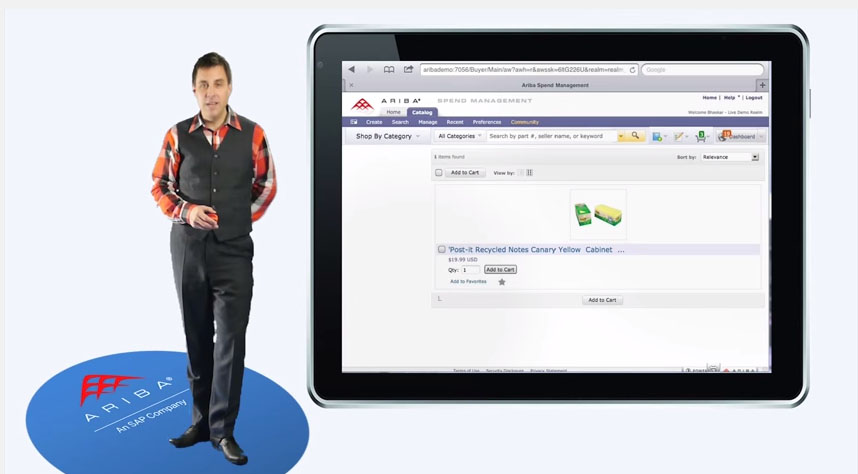


It is also possible to map all the key processes of strategic and operational procurement in the cloud in a single project so not just for indirect spend, but for direct spend as well.

“Among the key advantages of SAP’s cloud approach are the fact that SAP Ariba offers an end-to-end portfolio of services, and that updates and innovations are available instantly,” explains Boldys. SAP customers will find the functions they are familiar with from SAP SRM – for catalogs, discount arrangements with suppliers, auctions, RFQs, order processing, and so on – in the cloud, too. Three Ways to Transition to the Procurement Cloud

“With SAP’s strategy aligned to the cloud, it makes sense for businesses to start thinking now about transitioning their procurement,” says Martin Boldys from the SAP Ariba Customer Value Organization. Currently, the majority of SAP customers are still using the on-premise SAP SRM application. The cloud procurement platform SAP Ariba taps into a network of over 3 million connected companies that conduct more than €1.3 trillion of commerce over the network every year. The cloud approach offers the potential to cover all the planning, strategic, and operational aspects of procurement in one place. Imagine a single system that covers everything: ordering, approval, delivery, invoicing, strategic contracts with preferred suppliers, central RFQs across a global platform, and spend analyses. Why does this shift make sense? Because, as well as offering additional benefits, the integrated SAP Ariba platform – unlike older releases of SAP SRM – is fully compliant with the EU General Data Protection Regulation (GDPR). Transform SRM is a program from SAP Digital Business Services designed to provide customers with targeted support for their transition to the cloud – namely, to SAP Ariba. Many customers currently use the SAP Supplier Relationship Management (SAP SRM) application to manage their procurement processes.


 0 kommentar(er)
0 kommentar(er)
